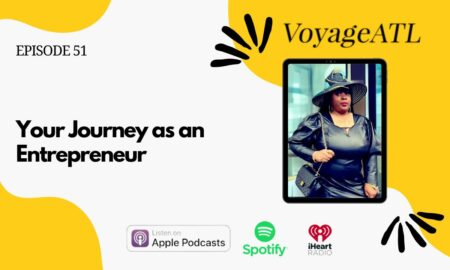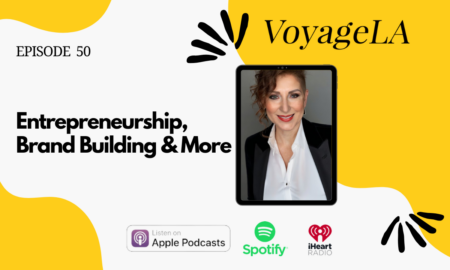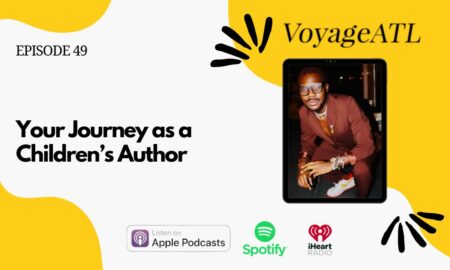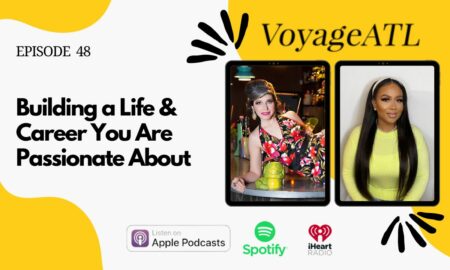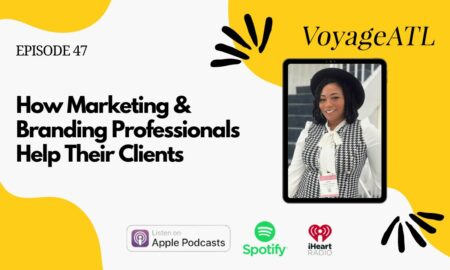

Today we’d like to introduce you to Leisa Brewer.
Leisa, can you briefly walk us through your story – how you started and how you got to where you are today.
While a student at Spelman College, I participated in an oral history project entitled “Spelman’s Independent Scholars.” In this project, we interviewed elder, African American women in the South who experienced historic events I have only read about in history books–history books that omitted the African American narrative during those events.
Most of the women I interviewed went to my alma mater, Booker T. Washington High School (BTW) which is the oldest public high school for African Americans southeast of the Mississippi River and was the only place for African Americans to be educated for quite a few years. When they learned that someone from their community was willing to interview them, all of the walls fell down and they yielded a bountiful harvest of stories, especially about BTW.
A few years after graduating from Spelman, I decided to create an oral history project at BTW that would allow the students to have the experience of connecting with and learning from those who have walked the same halls and lived in the same communities.
Four years later, These Halls Can Talk has grown significantly and has blossomed into a project that not only puts students at the forefront of preserving their history but has also begun to close the generational gap in our community.
Overall, has it been relatively smooth? If not, what were some of the struggles along the way?
Trailblazers never drive on smooth roads. And this journey, although not easy, has been beautiful.
As a creative, I am always coming up with ideas and am oftentimes influenced by other artistic works that I have wanted to include in the project. This presented a MAJOR problem for me as I was, for a while, very overwhelmed in which direction to take the project. Ultimately, I learned to force myself into sticking with ONE idea and writing down any others to potentially use in the future.
Another struggle was perfectionism. I aimed for perfection since I knew it was my name, my students’ names, and the school’s name being put out there. With this perfectionism, I compared my work (videography) to others’ and felt as if mine was never good enough. And when I say this prolonged the production process, I am NOT kidding. Eventually, the combination of growing weary of perfectionism, having the right mentors in my corner, and witnessing my growth in this process, led me to finally put my project out there
(*cough* thesehallscantalk.com *cough*).
Advice for other women? Do not let outside pressure force you to put your work out there prematurely. Whatever you are working on, it is YOUR baby. Wait until YOU are ready to put it out there.
On that same note, aim for quality, not perfection. Nothing will ever be perfect. EVER! There is always room for growth. Embrace it.
Also, claim your space. Wherever you are, you deserve to be there. Speak and act with the confidence of knowing this and everything will fall into place.
Finally, respectfully set your boundaries (your instincts will guide you with this). It is common for people to unintentionally (and sometimes intentionally) take you away from your work so that you can work on theirs. When in this situation, gauge the “opportunity,” calculate the costs (time, energy, etc.), question the value it adds to your work and go from there. Trust me, some opportunities can be rejected without burning bridges.
What do you do, what do you specialize in, what are you known for, etc. What are you most proud of? What sets you apart from others?
Booker T. Washington High School, the first public high school for African Americans in the state of Georgia, has been a major hub for African American students and faculty during pivotal historic events that have impacted us not only globally, but also generationally.
These Halls Can Talk is an oral history project that encourages current Washington students to conduct research on various historic events and generate questions to ask former students, staff and faculty of Washington. As the Founding Director, I not only teach students history, I also teach them the importance of bridging the generational gap in our community by: Opening a dialogue between Washington’s past and Washington’s present;
Encouraging the alumni and former faculty to be more active in the progression of the school and its students;
Preserving the history of the school through the authentic stories of former students and faculty.
I am most proud of my students! My goodness! They are so eager to learn about the school’s history and have actively taken charge of suggesting interview topics, coordinating activities, and teaching other students who are not in the project about the importance of claiming THEIR narratives–past and present.
Finding a mentor and building a network are often cited in studies as a major factor impacting one’s success. Do you have any advice or lessons to share regarding finding a mentor or networking in general?
When it comes to finding a mentor, map out your goals and already have a set list of things your mentor can help you with. The last thing you want to do is ask someone to help you without clearly knowing/communicating how they can help.
Contact Info:
- Website: thesehallscantalk.com
- Email: info@thesehallscantalk.com
- Instagram: @thesehallscantalk
- Facebook: facebook.com/thesehallscantalk



 Image Credit:
Image Credit:
Students with BTW Alumni
Suggest a story: VoyageATL is built on recommendations from the community; it’s how we uncover hidden gems, so if you or someone you know deserves recognition please let us know here.















